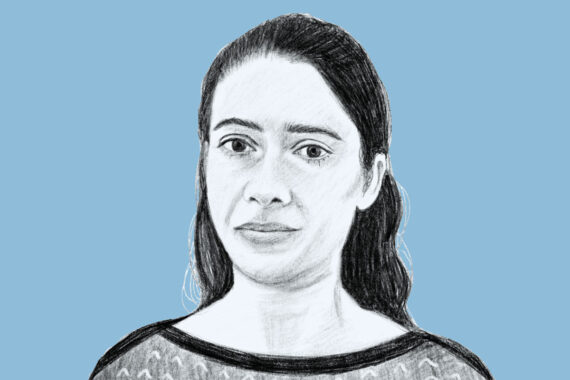We GPs are consulting more frequently than ever, but our patients’ health is worsening – NHS England needs to rethink its strategy for general practice, says Dr Katie Musgrave
The crisis facing general practice has been entirely predictable, and is set to worsen. The question is, what has NHS England been doing? Will its strategy work?
Its current plan is based on the Fuller Stocktake, and largely seems to accept the rising demand for appointments. It focuses on increasing the use of multidisciplinary teams, and scaling up services, including plans to separate urgent care from routine care.
There is a rudimentary logic to this approach. After all, repeated pledges to increase GP numbers have proven undeliverable (bafflingly, we pesky GPs continue to retire or reduce our clinical sessions). So, if demand continues to rise, but more GPs cannot be found, surely others will have to stand in our place?
The drive to scale up general practice, one suspects, is partly designed to defend against the risk of widespread practice collapse. It’s better to merge practices than see them hand back contracts, with no one prepared to take on the patients on their list. It may also (to a sceptic) provide a route to returning out-of-hours back into the GP contract.
But are there unintended consequences to scaling up, or providing urgent care across larger populations? Do problems arise when diluting the experience and continuity of smaller teams of GPs and nurses? Will staff in larger multidisciplinary teams be adequately trained to manage undifferentiated presentations? Will patients who lack a regular doctor return more frequently, see a different person each time, hear different opinions, and lose confidence in their healthcare advice? Will clinicians take the easy route when dealing with more complex patients and offer more tests or referrals, rather than grappling with underlying issues or building relationships?
Crucially, are patients less satisfied at larger practices? Why is this, if bigger is better? Are GPs more or less content working under these models? Will they maintain the same number of clinical sessions, or will they increasingly seek other roles after finding the workload too intense?
To date, NHS England has – astonishingly – focused minimal attention on developing parallel services. Children’s centres are now closed, with accessible health visitors providing important support to new parents. With the burgeoning demand for menopause advice, there was an obvious opportunity to establish women’s health clinics. Or mental health cafes, with therapists directly accessible to offer support. Despite the rapidly expanding demand, the provision of these services has, as always, fallen to the GP. After all, who can provide a cheaper menopause service than us? A more efficient mental health service? But we can’t do it all (and we would die trying).
Rather than relieving pressure, NHS England’s vision for general practice has involved sending more work in our direction, stoking an ever-increasing demand for appointments. Do patients really need to consult twice as often as they did a few decades ago? (And it’s not the ageing population driving this; patients over the age of 75 are the only adult group who now consult less frequently than they did before Covid.)
Furthermore, outcomes are not improving, with a faltering life expectancy, failing hospitals and ambulance services, and increased excess deaths at home. So, despite consulting more frequently than ever, our patients’ health is worsening, GPs are leaving in their droves, and the hospitals are buckling. Someone needs to re-examine the strategy.
In their wisdom, our leaders at NHS England have failed to see that GPs (and our surgeries) are a precious resource, with expertise that must be protected. Rather than encouraging patients to seek appropriate support via alternative services (or encouraging better self-care), they have continued to funnel all and sundry in our direction. Instead of recognising that continuity and in-depth clinical knowledge are integral to general practice, they have preferred to scale up services and fast-track staff on to the front line.
Yet, when the primary problem is spiralling demand with inadequate capacity, NHS England cannot blithely send more work our way. We simply must be allowed to focus on services that only a GP surgery can deliver. Our leaders may be able to push through transformations, but if their strategy is poor, the results will disappoint. With the NHS in a precarious state, even a small mis-step could prove disastrous.
If NHS England drives out enough GPs, while dismantling our most effective practices, who will be left to pick up the pieces?
Dr Katie Musgrave is a GP in Devon and quality improvement fellow for the South West
Pulse October survey
Take our July 2025 survey to potentially win £1.000 worth of tokens














I fully agree with your article and sadly I am one of those GP’s leaving in their droves. I have been a GP for nearly 17 years. I was a GP partner but had to leave my partnership due to unmanageable workload. I have been locuming since but locum work has dried up since the end of last year so I have reluctantly had to take 3 separate jobs in the private sector to make ends meet. The NHS is losing hundreds of experienced GP’s and once we are gone….we are gone!
Great article. Personally I see no solution. I too ‘was’ a GP for 17 years. I’ve found something else. It precarious but I wont be going back. Its taking me time but I’m getting used to telling people “I have a background in general practice” and more recently “I used to be a GP”
What vision?